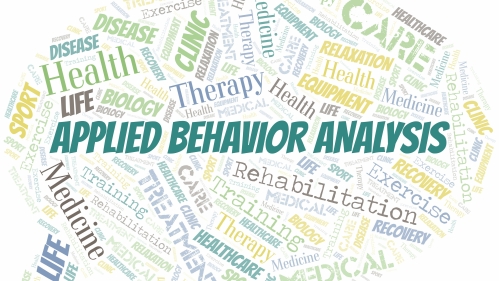
Academic Programs in Applied Behavior Analysis
GSAPP offers students multiple pathways to academic training in applied behavior analysis (ABA).
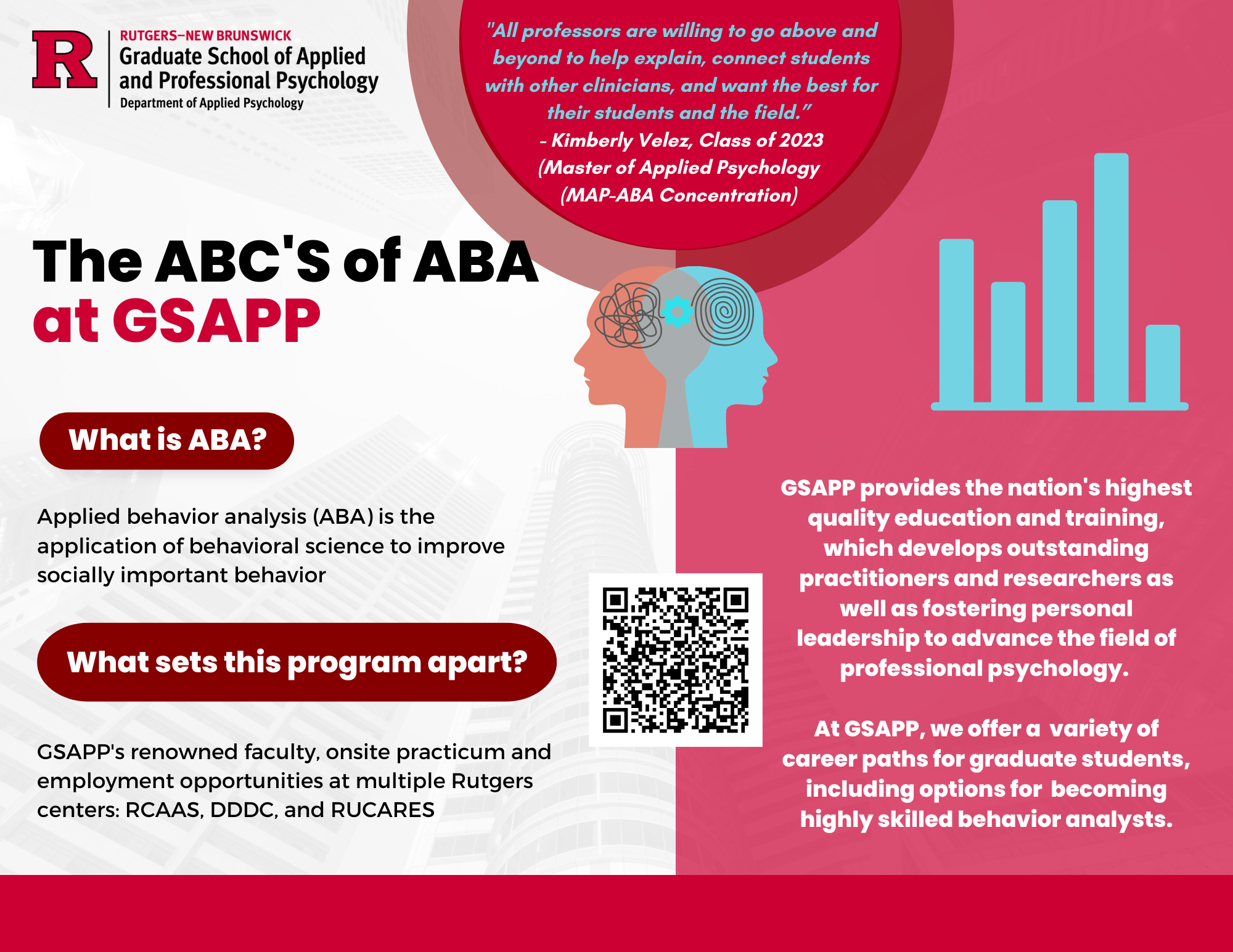
Overview
GSAPP offers students multiple pathways to academic training in applied behavior analysis (ABA).
- For those seeking a master's degree, consider our Master of Applied Behavior Analysis (MABA) program.
- For those who already have a relevant graduate degree or are pursuing a graduate degree in another program, consider our graduate Certificate in ABA.
- For those interested in seeking training in special education with specialization in ABA, consider the Master’s Degree Program in Special Education with the ABA sequence.
All programs are designed to train students to become exceptional behavior analysts who provide the highest quality of care using state-of-the-art, evidence-based practices.
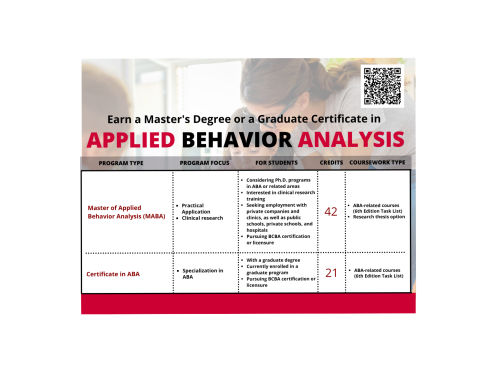
Master of Applied Behavior Analysis (MABA)
The Master of Applied Behavior Analysis (MABA) Program in the Department of Applied Psychology at GSAPP trains students to become highly-skilled behavior analysts who apply evidenced-based behavioral interventions to address the behavioral challenges of individuals in need. Our program is perfectly aligned with Rutgers University’s and GSAPP’s mission to train professionals who can integrate scientific knowledge with innovation in the delivery of clinical care that helps individuals and the local, national, and global communities where they live. Students have the opportunity to learn through coursework as well as real world experiences. Graduates will be well-educated, qualified, and competent direct-service behavior analysts and clinical researchers who have a special commitment to direct community involvement and to underserved populations.
Students who enter our program will receive a 42-credit Master of ABA degree, which includes instruction in foundation knowledge as well as education and training in applied areas of behavior analysis.
MABA Continued
The foundation is based on knowledge of the scientific basis of ABA and the values our school embraces--civic and global citizenship; social justice and helping the underserved; and cultural diversity. It is our expectation that these values will become the lens through which students view human interactions and will be emphasized in their supervision groups.
The applied emphasis of the program includes opportunities for students to receive training in socially-significant areas of behavior analysis, participate in practicum, and have opportunities to integrate their didactic and applied learning experiences. This program will prepare graduates to become BCBAs who can independently practice ABA or continue to obtain their doctorate in behavior analysis.
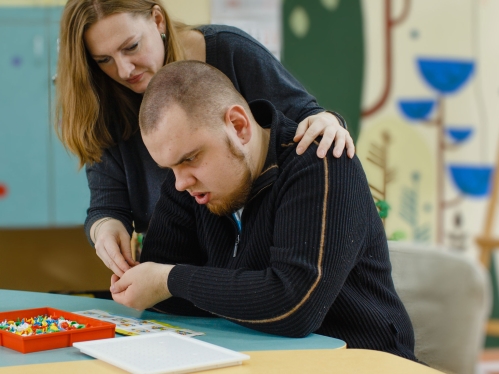
ABA in Camden
Our graduate ABA program is now available in Rutgers-Camden! Behavior Analysts are in high demand and often receive multiple job offers within months of graduation and certification. We are excited to expand our reach by partnering with RU-Camden to offer ABA courses and training to an even greater population of students looking to enter this in-demand field.
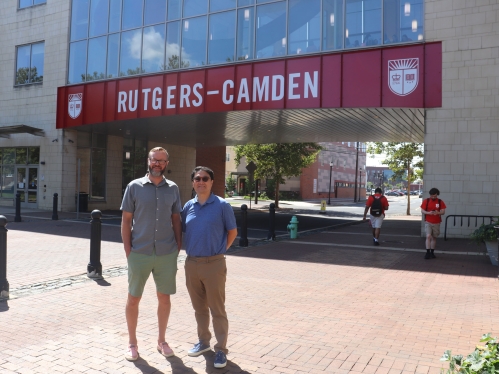
Graduate Certificate in ABA
Our Certificate in Applied Behavior Analysis program offers specialization in ABA and meets the academic coursework requirements for certification in behavior analysis through the Behavior Analyst Certification Board (BACB).
In addition, individuals pursuing a BACB credential will also need a graduate degree, appropriate supervised experience, and passing grade on the national certification exam.
The Association for Behavior Analysis International has verified our courses toward the coursework requirements for eligibility to take the Board Certified Behavior Analyst examination. Applicants will need to meet additional requirements before they can be deemed eligible to take the exam. This program is designed for individuals who are currently working towards or already have their graduate degree. Click to learn more about a sample course schedule or our ABA sequence courses.
Applications deadlines: Fall Semester, rolling admissions and Spring Semester, rolling admissions

Practical Training
GSAPP offers students the ability to gain valuable, practical, supervised, on-site training at our renowned community-based centers.These centers use an ABA model and are widely recognized throughout the country for their commitment to evidenced-based intervention. The Douglass Developmental Disabilities Center (DDDC) is a university-based center that provides services to individuals with autism spectrum disorders (ASD), their families, and their schools. The Rutgers Center for Adult Autism Services (RCAAS) supports adults with ASD through a wide range of services (e.g., employment, college) specifically tailored to account for individual preference and ability.

Industry Experts
GSAPP faculty and staff pride themselves on their involvement in professional organizations and staying abreast of industry trends. Seven RU-GSAPP members, experts in applied behavior analysis, have/had key leadership roles in NJABA!
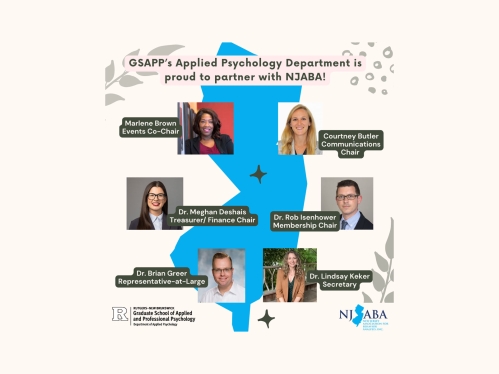
A Quality Education
The Association for Behavior Analysis International has verified our courses toward the coursework requirements for eligibility to take the Board Certified Behavior Analyst® examination. Applicants will need to meet additional requirements before they can be deemed eligible to take the examination. Our courses are based on the Behavior Analyst Certification Board’s Fifth Edition Task List. Our faculty diligently prepare students for the BCBA exam through classroom learning and relevant fieldwork assignments. The recent pass rate of the exam for Rutgers’ first-time test takers are as follows: 2021 - 54% | 2020 - 93% | 2019 - 80% | 2018 - 93% | 2017 - 82% | 2016 - 81%. It is important to note that "Pass Rate" is only one indication of the value of a program and that other variables do impact test scores/pass rate beyond University programming. Proper supervisory experience increases the likelihood of passing the BCBA exam. Many of our students work and gain experience at Rutgers-affiliated programs as well as off-site organizations.

ABA Academic Programs FAQs
-
Starting in Spring 2025, we will only accept ABA master's students into our MABA program. The revised coursework will meet the upcoming BACB's 2027 Coursework Standards and will place greater emphasis on behavior analytic coursework. Additionally, students will have the option of completing a thesis or capstone.
-
Our courses are scheduled for 2.5 hrs, Monday-Thursday at 3:35 p.m. or 6:15 p.m. to accommodate those students who work during the day. We find that working in ABA-related organizations strengthens the graduate training experience. Work experience helps to synthesize the course content.
-
Although we encourage our graduate students to participate in ABA-related fieldwork experiences, we do not place students nor can we guarantee that you will complete all the BACB fieldwork hours by the time you graduate. Many of our students work at ABA sites at Rutgers as well as outside of Rutgers.
-
Our program is in person. Classes are typically taught on the Busch Campus.
-
Graduates of our ABA academic programs have gone on to obtain their BCBA so that they can work for private companies, public schools, private schools, and university-based programs. Additionally, our students have continued to doctoral programs.
-
Although beneficial, this does not guarantee acceptance.
-
The MABA program offers students the option to complete either a capstone or a thesis. The capstone focuses on demonstrating content mastery through curriculum review and the development of a clinical portfolio, making it ideal for students planning to pursue professional practice. In contrast, the thesis is designed for students seeking additional research experience alongside their clinical training and is particularly suited for those considering doctoral programs in Applied Behavior Analysis (ABA). The thesis involves conducting an original research project under the guidance of our faculty.
-
Click here for costs per credit and financial information. For more information, contact the financial aid department.
Please note that our programs are in the Graduate School of Applied & Professional Psychology (GSAPP) at Rutgers – New Brunswick.